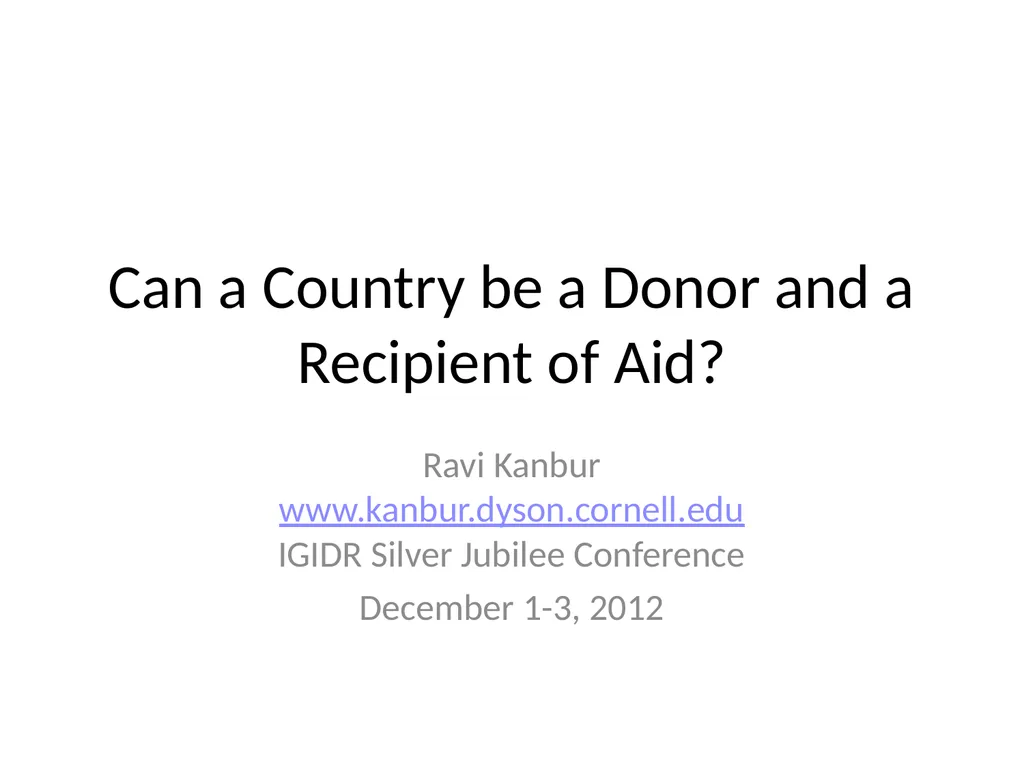
Author : danika-pritchard | Published Date : 2025-05-28
Description: Can a Country be a Donor and a Recipient of Aid? Ravi Kanbur www.kanbur.dyson.cornell.edu IGIDR Silver Jubilee Conference December 1-3, 2012 Outline Introduction: The Politics of Aid to Middle Income Countries Moral Salience of the NationalDownload Presentation The PPT/PDF document "" is the property of its rightful owner. Permission is granted to download and print the materials on this website for personal, non-commercial use only, and to display it on your personal computer provided you do not modify the materials and that you retain all copyright notices contained in the materials. By downloading content from our website, you accept the terms of this agreement.
Here is the link to download the presentation.
"Can a Country be a Donor and a Recipient of"The content belongs to its owner. You may download and print it for personal use, without modification, and keep all copyright notices. By downloading, you agree to these terms.













